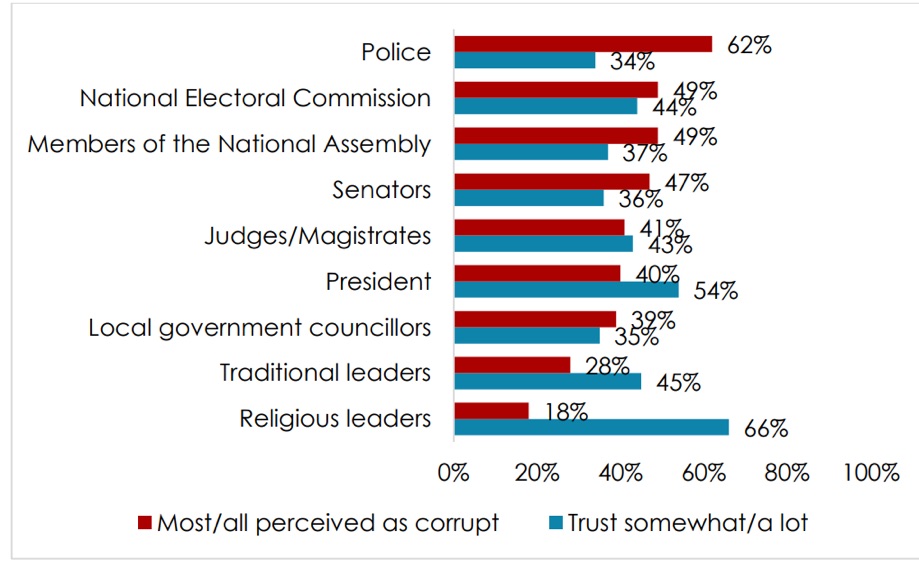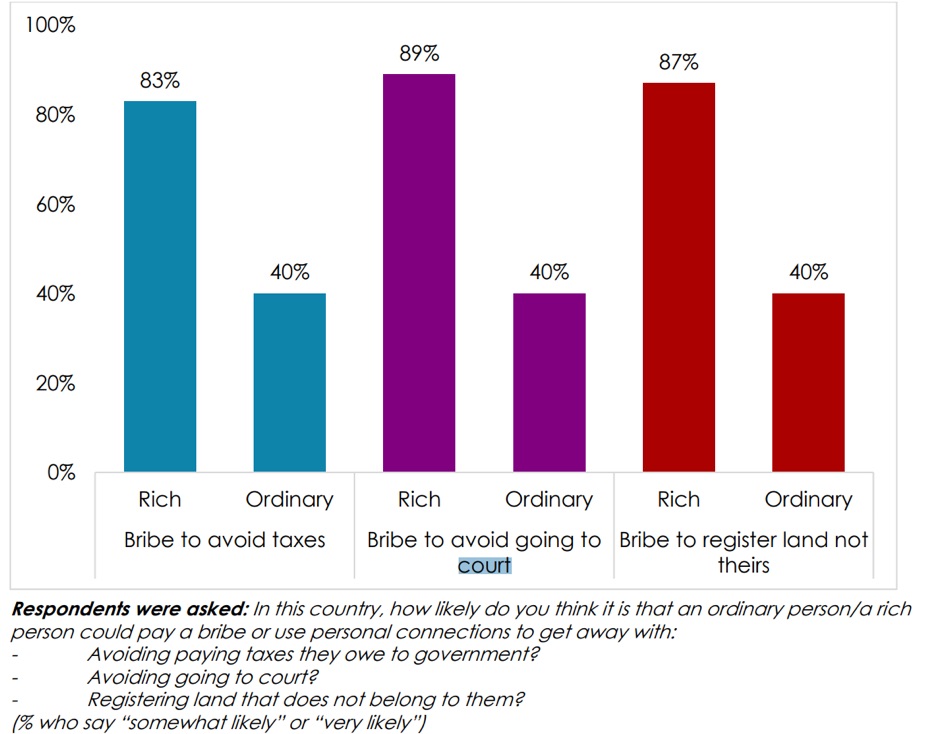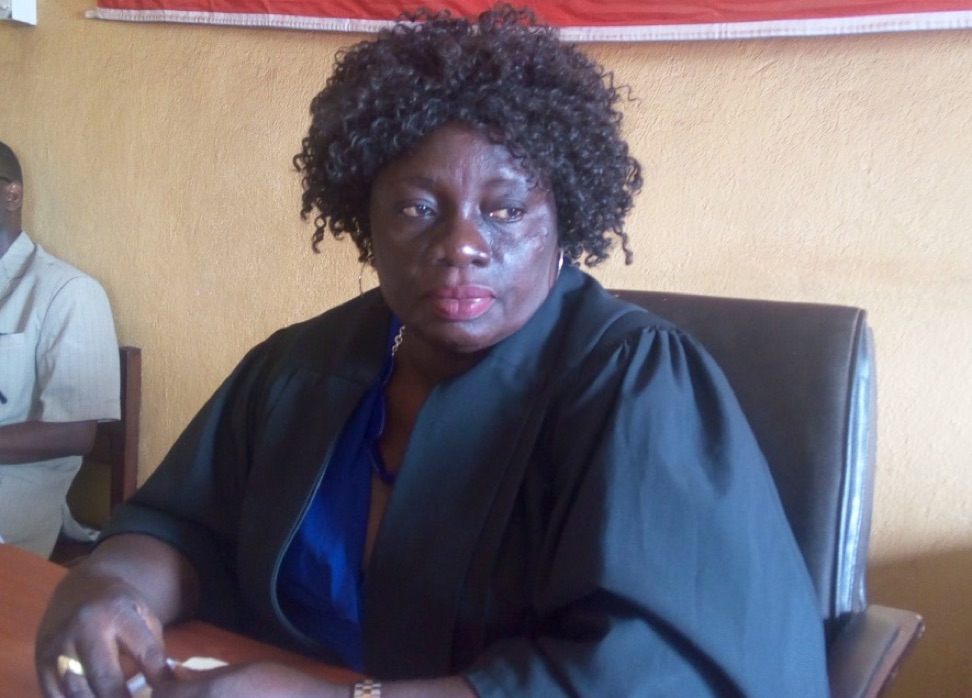KAKATA, Margibi – The resident judge of the 13th Judicial Circuit Court in Kakata, Judge Mardea Tarr-Chenoweth, is calling attention to the massive corruption in the country’s security and justice sectors, specifically identifying the Liberia National Police.
Tarr-Chenoweth quoted data from an Afrobarometer survey released in November 2018 that found that the police were most widely perceived as corrupt, with trust in the police is tremendously low. The report found that 62 percent of respondents found that most or all police are corrupt.

Trust and perceived corruption. Source: Afrobarometer
Tarr-Chenoweth made the comment during the opening of the May term of court at the 13th Judicial Circuit Court.
She said it was appalling for police officers to routinely extort money from citizens at all stages of a case, from registering complaints to requiring money to go to a crime scene, to obtaining release from detention.
“Accused persons have also charged the police of manipulating cases to change civil matters into criminal cases, and since the departure of UNMIL, people are now kept at some police detentions beyond the statutory period without justification,†she said.
Tarr-Chenoweth also drew attention to the data indicating the judicial system – Afrobarometer noted that 89 percent of Liberians said the rich are more likely than an ordinary person to avoid going to court. Additionally, 41 percent of Liberians believe that most or all judges and magistrates are corrupt.

Bribery by the rich vs. ordinary people. Source: Afrobarometer
“These widely different levels of trust towards the country’s justice sector institutions will bear heavily on the sustenance of the democracy in our country,” she said.
“The court, as part of the criminal justice system, needs to do more to build people’s confidence, so that they can get redress whenever they are aggrieved.â€
The Margibi judge noted that the perception of trust of the security and justice sector actors are especially important since experience shows that when the public lack confidence in the institutions whose mandate is to protect them, violence is more likely, as individuals feel they need to take the law into their own hands.
Tarr-Chenoweth’s message sounded similar to that of Judge Joe Barkon from the Second Judicial Circuit Court in Grand Bassa, who warned magistrates and judges against unethical behavior to extract money from citizens. Barkon drew attention to Associate Magistrate David Foday of the Compound Three Magisterial Court, who had extorted L$64,000 (US$400) from a litigant under the pretext of a fee for transferring the case for appeal to the circuit court.
In response to the judge’s remarks, Margibi’s county attorney, Deddeh Wilson, welcomed Tarr- Chenoweth’s comments and assured her office’s full cooperation and collaboration.
She cautioned magistrates to see themselves as the face of the court system and warned them to break away from the tradition of sending people to jail unnecessarily.
“This is intended to decongest the prison and refrain from punishing people for crimes they are not guilty of, so as to save the court from negative public perception,†she cautioned.
Wilson further assured the judge that she would be meticulous in discharging her duties to ensure that all parties receive transparent justice.
Over 50 cases, including 47 criminal and 13 civil cases, are on the docket. These include 8 rape and 3 murder cases.
Featured photo by Emmanuel Degleh Â



